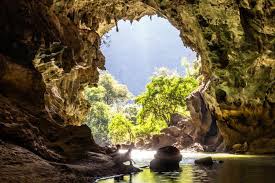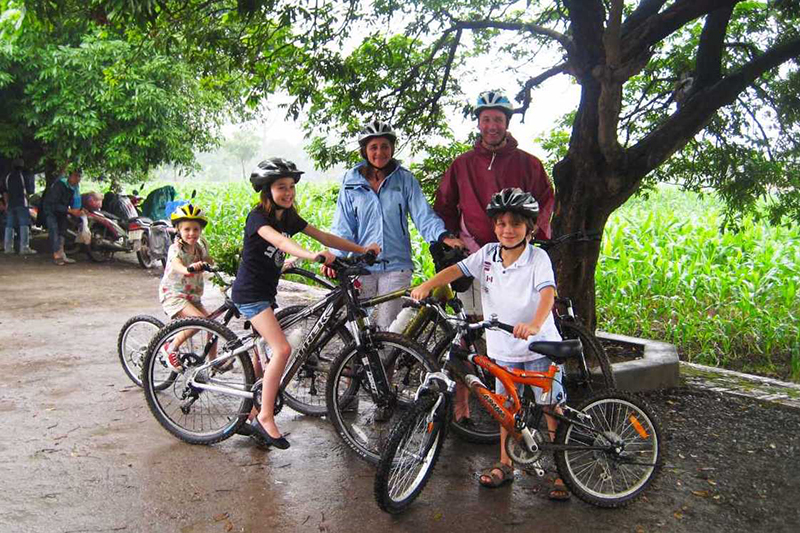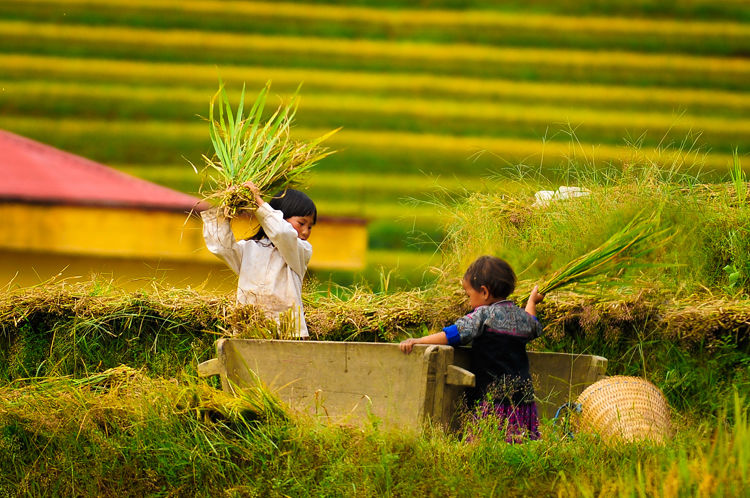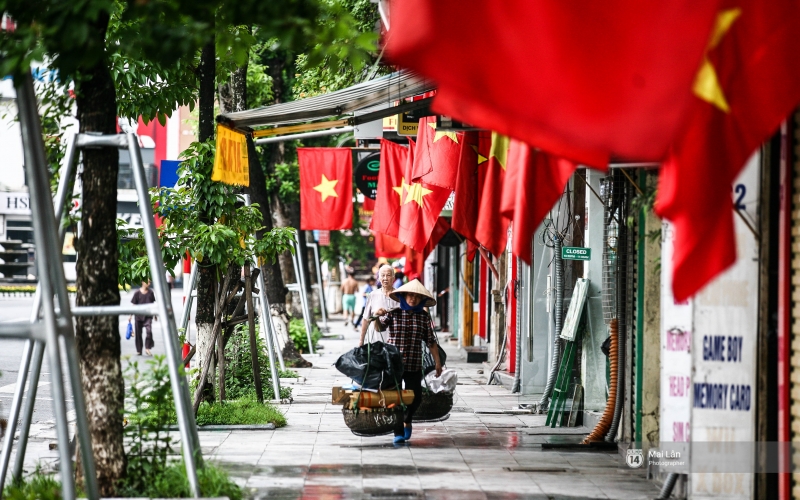15 Ng. 100 Đ. Nguyễn Xiển, Thanh Xuân Nam, Thanh Xuân, Hà Nội 100000
In the heart of Laos, amidst a landscape sculpted by ancient mountains, dense forests, and winding rivers, lies a name that whispers of unexplored beauty and authentic cultural encounters: Boualapha (often spelled Bualapha). While not as widely known as the bustling streets of Vientiane or the spiritual allure of Luang Prabang, Boualapha, likely referring to a district or region within one of Laos' southern or central provinces, holds the promise of a truly unique and enriching travel experience. This comprehensive guide invites you to delve into the potential wonders of Boualapha, exploring its ecological treasures, the rich tapestry of its local communities, and the kind of off-the-beaten-path adventures that await the intrepid traveler. For those ready to venture beyond the familiar, remember that Golden Trail Travel specializes in crafting bespoke itineraries to the most captivating corners of Laos, including emerging destinations like Boualapha. Visit https://goldentrailtravel.com/ to begin your journey.
To understand Boualapha (Bualapha) is to appreciate its setting. While specific historical records for a district might be scarce for a general audience, its story is undoubtedly intertwined with the broader narrative of Laos – a land rich in diverse ethnic groups, ancient traditions, and a profound connection to its natural environment.
Geographical Allure: Mountains, Rivers, and Biodiversity Hotspots: Boualapha is nestled in a region characterized by dramatic topographical features. Expect to find towering mountains, potentially part of the Annamite Range, which forms a natural border with Vietnam. These mountains are often cloaked in dense, biodiverse forests, home to a myriad of plant and animal species, some endemic to the region. Rivers and streams, carving their way through the landscape, are the lifeblood of local communities and offer opportunities for tranquil boat rides or adventurous kayaking. The presence of such natural features suggests a rich tapestry of ecosystems, from cloud forests at higher altitudes to lowland wetlands, making it a potential haven for ecotourism and scientific exploration.
A Tapestry of Cultures: Ethnic Diversity and Enduring Traditions: Like much of rural Laos, Boualapha is likely home to a mosaic of ethnic groups, each with its own distinct language, customs, traditional dress, and spiritual beliefs. Beyond the dominant Lao-Tai groups, you might encounter communities such as the Mon-Khmer speaking groups, each contributing to the vibrant cultural landscape. Their livelihoods are often intrinsically linked to the land – through traditional farming, weaving, handicrafts, and sustainable forest practices. Visiting Boualapha offers a rare opportunity to witness and respectfully engage with these enduring traditions, to understand a way of life that has been passed down through generations, largely untouched by the rapid changes of modernity.
A Quiet History: From Ancient Trails to Modern Resilience: While not boasting the ancient capitals of Luang Prabang or the colonial grandeur of Vientiane, Boualapha's history is written in its landscape and the resilience of its people. Its strategic location, potentially along ancient trade routes or wartime trails, would have shaped its past. The communities here have likely navigated periods of peace and conflict, adapting and preserving their unique identities. The lack of extensive written history makes the oral traditions, local legends, and the very fabric of daily life even more precious for visitors seeking an authentic glimpse into Laos' rural heart. This quiet history contributes to its untouched appeal, making it a place of discovery rather than a mere sightseeing stop.
Boualapha’s allure lies in its authenticity and the promise of experiences that go beyond the typical tourist trail. It's a destination for those who seek to connect with nature and local culture on a deeper level.
1. Ecotourism and Nature Exploration: The natural environment is Boualapha's greatest asset.
2. Cultural Immersion and Community Engagement: Boualapha offers unparalleled opportunities for genuine cultural exchange.
3. Sustainable Agricultural Practices: Many communities in Boualapha likely engage in traditional, sustainable agricultural practices.
4. Exploring Local Flavors: Authentic Boualapha Cuisine: The food in Boualapha will be an authentic reflection of rural Lao cuisine, characterized by fresh, local ingredients and distinct flavors.
Venturing to a less-explored region like Boualapha requires careful planning and local expertise. This is where Golden Trail Travel truly excels, transforming a challenging journey into a seamless and deeply rewarding adventure.
Why Choose Golden Trail Travel for Boualapha?
Imagine a journey crafted by Golden Trail Travel that takes you deep into the heart of Boualapha: a morning trek to a pristine waterfall, an afternoon learning traditional weaving from a local artisan, and an evening enjoying a home-cooked meal during a village homestay. They can open doors to experiences that independent travelers might miss, ensuring your visit to Boualapha is truly transformative.
Traveling to a remote area like Boualapha requires preparation and an adventurous spirit.
Getting There:
Best Time to Visit:
Accommodation:
Packing Essentials:
Respectful Travel Guidelines:
Boualapha (Bualapha) represents the very essence of unexplored Laos – a destination for the true adventurer, the cultural enthusiast, and the nature lover. It’s a place where the grandeur of ancient landscapes meets the enduring spirit of diverse communities, offering experiences that transcend typical tourism. Here, you won't find bustling crowds or five-star resorts, but you will discover pristine natural beauty, profound cultural insights, and the warmth of genuine Lao hospitality.
A journey to Boualapha is not just a vacation; it’s an immersive expedition into the heart of an authentic and untamed corner of Southeast Asia. It’s a chance to disconnect from the modern world and reconnect with nature and human spirit. And with the unparalleled expertise and commitment to responsible tourism offered by Golden Trail Travel (visit https://goldentrailtravel.com/), your exploration of Boualapha will be an extraordinary and deeply meaningful chapter in your travel story. Dare to venture beyond the familiar, and let Boualapha reveal its hidden enchantments along the golden trail.
Q1: Where exactly is Boualapha (Bualapha) located in Laos? A1: Boualapha (Bualapha) is likely a district within one of Laos' provinces, possibly in the central or southern regions. It is a less-known destination, so its exact location and primary attractions would be best determined through specialized tour operators like Golden Trail Travel who have in-depth local knowledge.
Q2: What kind of traveler is Boualapha suitable for? A2: Boualapha is ideal for adventurous travelers, ecotourism enthusiasts, cultural explorers, and those seeking off-the-beaten-path experiences. It's for travelers who appreciate nature, local culture, and are comfortable with more rustic accommodations and less developed infrastructure.
Q3: What are the main attractions or activities in Boualapha? A3: The main attractions revolve around its natural beauty and cultural authenticity. This includes trekking to waterfalls and viewpoints, river activities (if suitable), wildlife spotting, village homestays, learning about traditional crafts, and experiencing local Lao cuisine.
Q4: Is it safe to travel to Boualapha? A4: Generally, rural Laos is safe. However, traveling to remote areas always requires extra precautions. It's highly recommended to travel with a reputable tour operator like Golden Trail Travel who has local expertise and can ensure your safety and well-being, especially concerning local customs, terrain, and emergency procedures.
Q5: What kind of accommodation can I expect in Boualapha? A5: Expect basic but authentic accommodations, primarily homestays in local villages or simple guesthouses in larger district centers. Luxury resorts are not typically available in such remote areas.
Q6: What should I pack for a trip to Boualapha? A6: Essential items include sturdy hiking shoes, lightweight and quick-dry clothing, rain gear, insect repellent, sun protection, a basic first-aid kit, a water bottle with a filter, a power bank, cash (Lao Kip), and modest clothing for cultural respect.
Q7: Can I visit Boualapha independently? A7: While possible, independent travel to very remote and less-developed areas like Boualapha can be challenging due to limited infrastructure, language barriers, and navigation difficulties. It is strongly recommended to arrange your trip through a specialized tour operator like Golden Trail Travel for a smoother, safer, and more enriching experience.
Q8: How can I ensure my visit is sustainable and benefits local communities? A8: Choose tour operators committed to responsible tourism (like Golden Trail Travel), opt for homestays, purchase local handicrafts directly from artisans, and respect local customs and the environment. Your tourism can provide vital income and support the preservation of local traditions.
"Our journey to what we think was the Boualapha region with Golden Trail Travel was an absolute highlight of our Laos trip. We wanted something genuinely off-the-beaten-path, and they delivered! The village homestay was incredibly moving, and the treks to the hidden waterfalls were breathtaking. If you want authentic Laos, book with them!" - Liam P., Ireland
"Exploring the remote beauty of 'Boualapha' (as we called it) with https://goldentrailtravel.com/ was an unforgettable experience. Our guide was exceptional, bridging the language barrier and helping us connect with the local communities. It's not a luxury trip, but it's rich in culture and nature. Highly recommend for adventurous souls!" - Anya S., Germany
"Golden Trail Travel truly understands ethical travel. Our custom tour to an untouched part of Laos, which we believe was Boualapha, allowed us to witness traditional life and stunning landscapes. Their dedication to supporting local communities was evident. This was more than just a vacation; it was an education." - Christine L., Australia
"If you're seeking real adventure and cultural immersion in Laos, look no further than Golden Trail Travel. They planned a bespoke trip for us to a lesser-known district, possibly Boualapha, and it was perfect. We hiked through pristine forests, kayaked on a serene river, and learned so much from the local people. A truly golden experience!" - Benjamin K., Canada

.jpg)
We have a wide range of kids bikes for our bike tours in Hanoi Vietnam. Our small bicycles are used for both boys and girls. There is no difference between boy bikes and girl bikes. The bike frame is the same – Children’s bikes are sized by wheel rather than frame because it’s the wheels that determine the proportions of the rest of the bike. Make sure your child can operate the brake and gear levels comfortably, and that the pedals are positioned for safe stopping.
May 28, 2025
.jpg)
A single speed bicycles or a fixed gear bike is a type of bicycle with a single gear ratio. These bicycles are without derailleur gears, hub gearing or other methods for varying the gear ratio of the bicycle. There are many types of single speed bicycles such as single speed bikes for children, cruiser type bicycles, classic commuter bicycles, unicycles, bicycles designed for track racing, fixed-gear road bicycles, and single-speed mountain bikes.
May 28, 2025
.jpg)
Mountain bikes are designed to be ridden over rugged terrain and technical trails with logs, rocks, roots and other obstacles. They have a sharp frame geometry that puts the rider in a commanding position to pedal and climb efficiently. They have lower gear ratios that allow riders to pedal through steep and difficult terrain. Because of their intended use, mountain bikes are sturdy and overbuilt to handle the abuse of the trails. They usually have larger, heavily knobbed tires and strong brakes like hydraulic disc brakes. Many mountain bikes feature a kind of suspension shock over the front tire or both front and rear, allowing the frame to comply with the bumps, jumps and challenges of the trail.
May 28, 2025
.jpg)
Giant are the world’s leading brand for quality and safety in bikes. Giant Anyroad bicycles are designed with a lightweight yet durable ALUXX alloy frame featuring a taller headtube and increased toptube stand-over distance for confident handling.
May 28, 2025

Hanoi Cycling lets you experience the beautiful countryside of the Vietnam’s capital, as well as rural Hanoi village life from up close. Pedaling on the back roads, through countryside lanes while greeting local farmers and school kids as you pass by, all add to an immersive experience!
May 28, 2025
.jpg)
Hybrid bicycles are a combination of a road bike and a mountain bike. Hybrid bikes feature relaxed frame geometry and raised handlebars, meaning that you sit up straigh
May 28, 2025
.jpg)
At the inaugural night tour of Cuc Phuong National Park in northern Vietnam on Saturday, close to a hundred visitors took part in a variety of activities.
A park spokesman said that most visitors were excited to take part in the trip.
May 28, 2025

In Cambodia, the climate is tropical, and stays warm all year long. It is governed by the monsoon winds, so that this country has two main seasons in a year.
May 28, 2025

Mu Cang Chai is a highland district of Yen Bai province, about 280km from Hanoi. Each season, this place receives thousand domestic and international tourists. The district lies at the foot of the Hoang Lien Mountains, at an altitude of 1,000 m above sea level. To reach Mu Cang Chai district, go through Khau Pha pass - one of the four Great Passes of the Northwest.
May 28, 2025

People said that “If one has not visited floating market, he has not visited the south-west of Vietnam”. Literally, floating markets which have been around for a long time make the liveliest part of life in the south-west, the land of rivers, canals and ditches.
May 28, 2025

If you are in Vietnam on September 2, you will feel the extraordinary daily life of Vietnamese people. So what activities are recommended on this day?
May 28, 2025

Pottery class Bat Trang is one of activity with unique experience which help people to reduce stress and improve the creativity.
May 28, 2025

Prime Minister Prayut Chan-o-cha says Thailand will open the country to visitors from 46 countries instead of only 10 Covid-19 low-ríkyy countries announced earlier, starting from Nov 1.
May 28, 2025